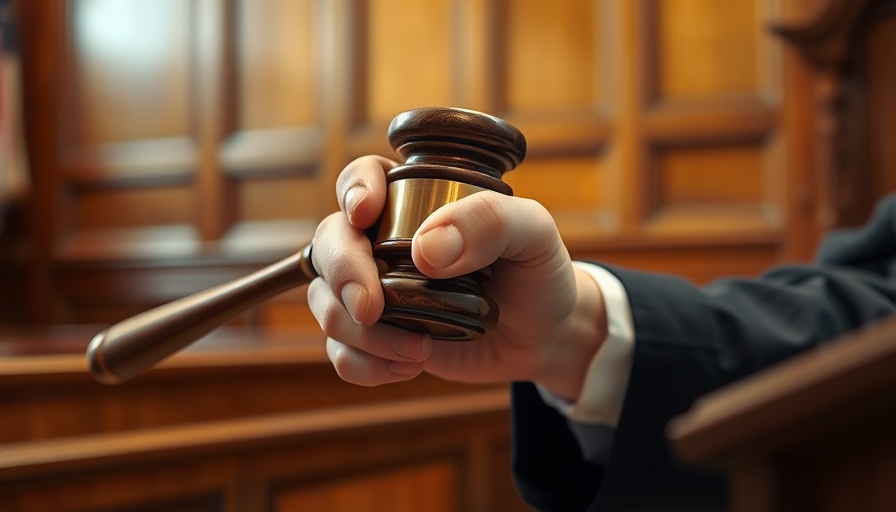
Federal Judge’s Landmark Ruling on AI Training
In a landmark decision, U.S. District Judge William Alsup has made headlines by ruling that AI startup Anthropic acted lawfully in training its AI model, Claude, using copyrighted books. This ruling, announced on June 24, 2025, marks a significant win for AI technology companies amidst ongoing debates over copyright issues.
Understanding Fair Use in Copyright Law
Judge Alsup's ruling centers on the concept of “fair use,” a component of copyright law that allows for the limited use of copyrighted material without permission from the copyright holder. He stated that Anthropic's methods transformed the existing works in such a way that it was akin to a reader becoming a writer. This comparison is essential as it frames the judgment within a broader context of how information is consumed and repurposed in an age of increasing technological advancement.
What Does This Mean for Authors and Content Creators?
The implications of this ruling extend deeply into the creative community. Authors Andrea Bartz, Charles Graeber, and Kirk Wallace Johnson filed a class-action lawsuit against Anthropic, arguing that their works were used unlawfully to train the AI without consent. The judge's ruling opens a pathway for AI firms to utilize vast amounts of text data, potentially undermining the rights of authors whose works are consumed as part of this process. This issue raises a crucial question: how can authors protect their intellectual property in a digital age where AI is rapidly evolving?
The Bigger Picture: AI and the Future of Copyright
This case highlights a growing trend: AI companies are increasingly declaring their right to use existing literary works to train their models, setting a potentially precarious precedent for future cases. Currently, the court has also announced that they will proceed to trial regarding allegations that Anthropic used pirated books, showing that while some practices may be deemed lawful, there are still significant ethical considerations left to address.
Evaluating the Ethical Landscape of AI Training
This ruling not only establishes a legal precedent but also raises moral questions about the practices of utilizing copyrighted materials for profit. As AI technologies become more entrenched in our daily lives, the question of how these technologies leverage creative works will likely foster ongoing discussions about a balanced approach to innovation versus intellectual property rights.
Looking Ahead: Implications for AI Companies
For AI companies, particularly those focused on creating machine learning platforms that rely on literary works, this ruling could signal a green light to proceed without seeking permission from authors. With Anthropic reportedly generating over a billion dollars from its AI model, the financial implications are vast. However, this success could come at the cost of diminishing creative industries as authors struggle to see the benefits from their labor being reinterpreted by AI.
A Call for Thoughtful Engagement with AI and Copyright
As the legal landscape surrounding AI continues to evolve and new rulings emerge, it’s crucial for authors, legislators, and tech companies to engage in thoughtful dialogue regarding the balance of innovation and intellectual property rights. Consider these aspects carefully to navigate the future implications of AI on creative processes.
This discussion is only beginning, and staying informed about how these laws affect creators and innovators will be vital.
 Add Row
Add Row  Add
Add 



Write A Comment